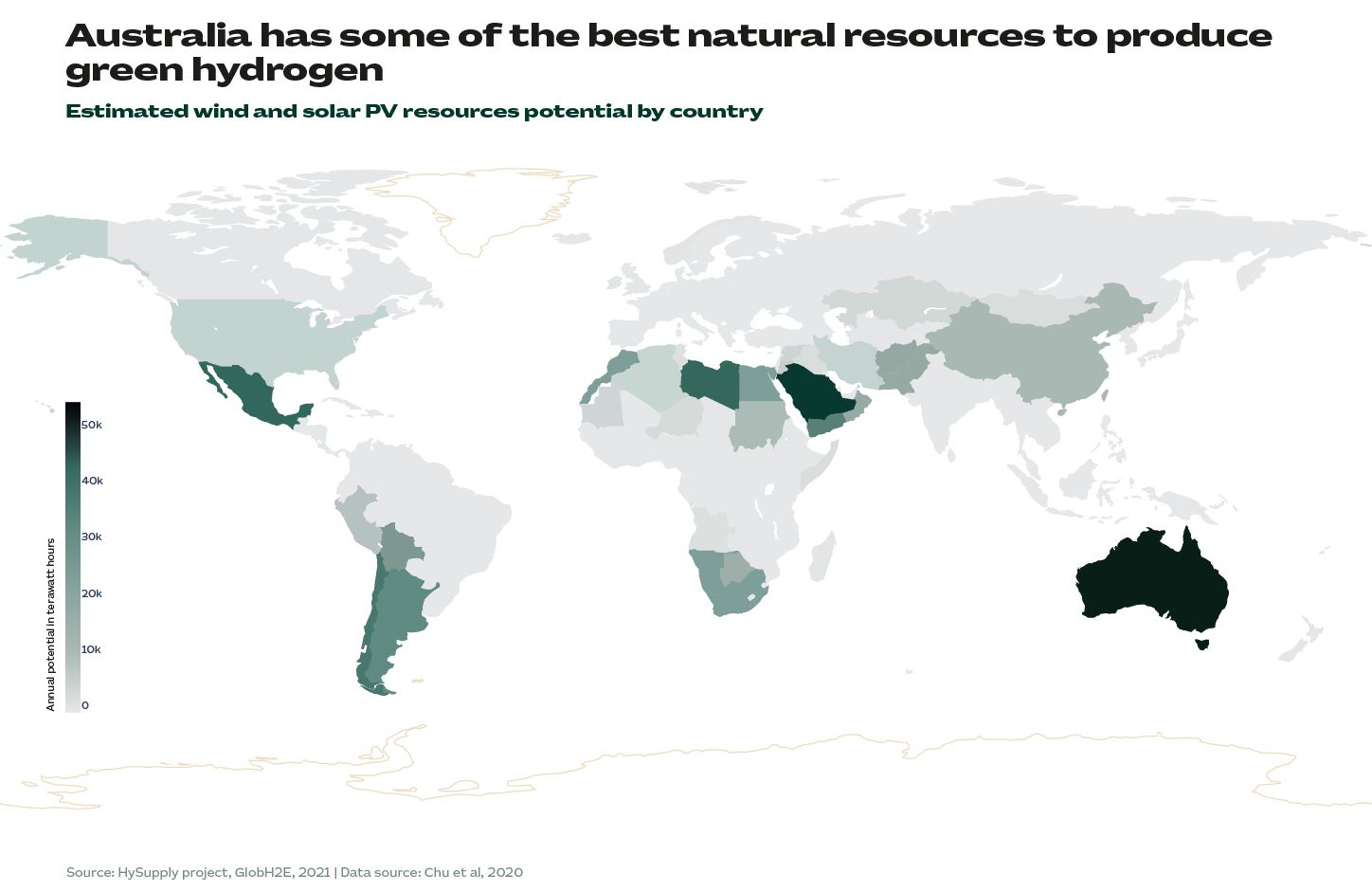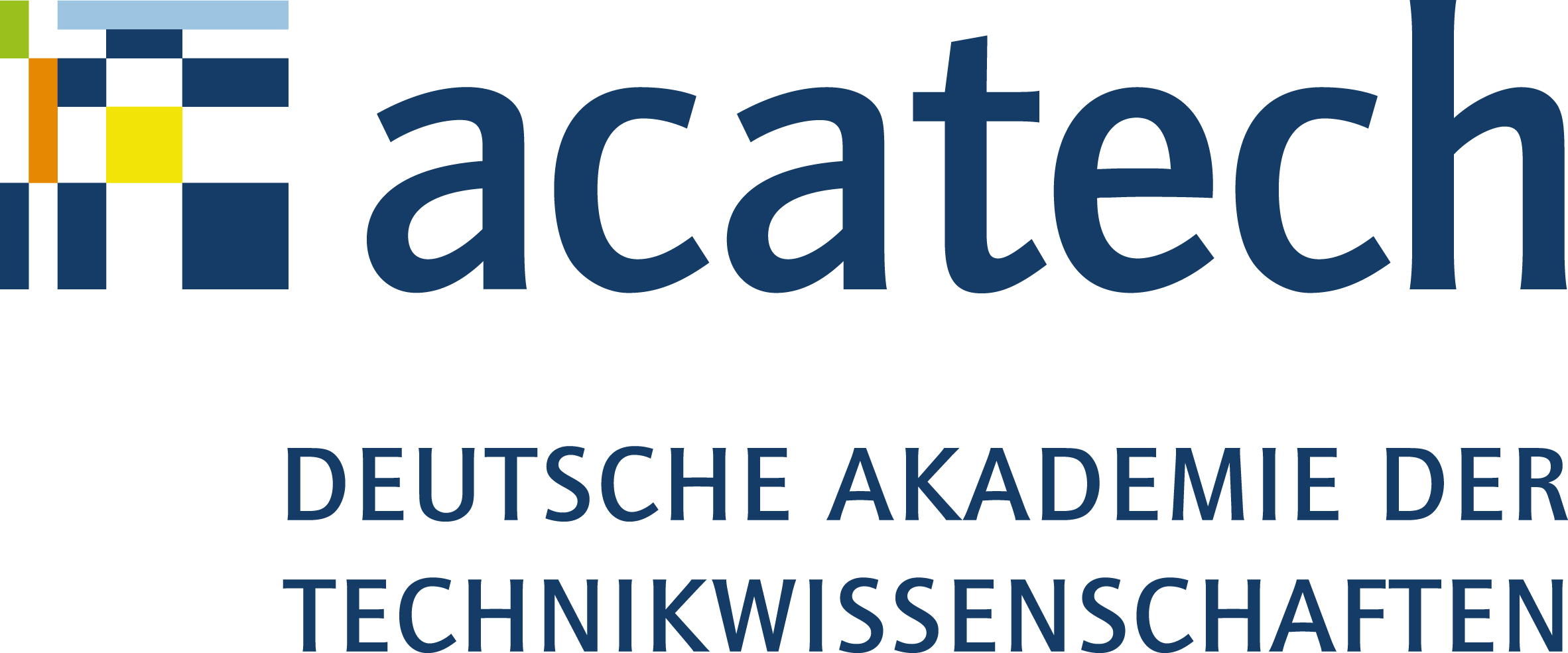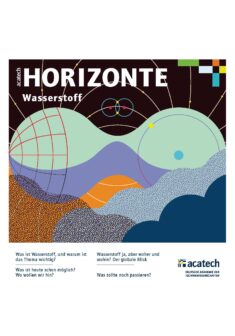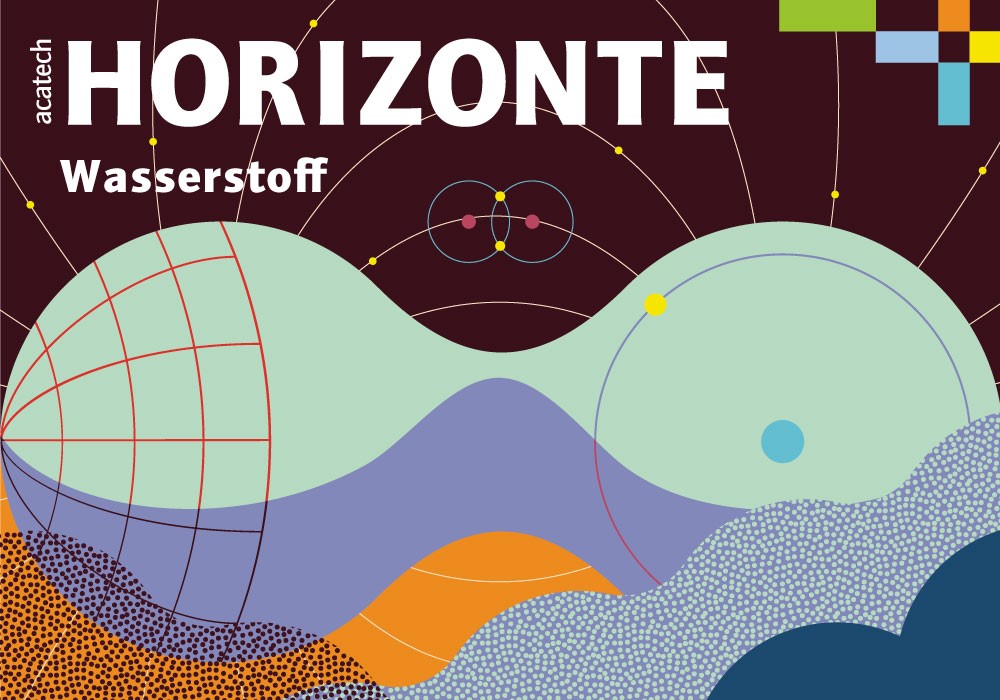HORIZONTE nachgefragt! mit Philip Green
Germany will have to import climate-friendly hydrogen from other regions because we cannot produce enough ourselves. What could international cooperation on hydrogen production look like? Philip Green, Australian Ambassador to Germany, explains, why Australia and Germany are natural partners in hydrogen.
Australia has some of the best natural conditions in the world to produce green hydrogen. Wind and solar energy from just 2 % of Australia’s land mass could provide enough hydrogen to meet all of Germany’s current annual energy consumption.

On the other hand, German companies and research institutes are world-leaders in the development of green hydrogen production, processing and storage technology, on which any future hydrogen industry will depend. Australia needs hydrogen technology and production equipment, in which German companies excel.
Australia is investing significantly to establish a world-class hydrogen industry. 40 % of all announced global hydrogen projects are in Australia.
There is already a EUR 120-180 billion pipeline of hydrogen projects around the country. And state and federal governments have committed over EUR 3.5 billion to support hydrogen in Australia.
In fact, it’s our ambition to be a first-mover in the hydrogen industry and a “renewable energy superpower”. Our government recently announced the equivalent to EUR 1.2 billion in funding for a scheme called “Hydrogen Headstart” which is intended to get our green hydrogen industry up and running.
The HySupply project, a two-year collaboration between German and Australian consortia, investigated the feasibility of a hydrogen and hydrogen derivatives supply chain between Australia and Germany, and identified how such a partnership can be facilitated. The project was led by industry with support from both the Australian and German government. The Federation of German Industries (BDI) and the German National Academy of Science and Engineering (acatech) on the German side, and the University of New South Wales (UNSW) on the Australian side, assembled leading industry, academic and research partners. The project partners identified the prospects and addressed the challenges of a bilateral supply chain.
Finally, the HySupply study found that a supply chain in green hydrogen between Australia and Germany is feasible (technically and economically), highly desirable (commercially and environmentally) and that transport costs will not be a major factor, despite the distance. But developing a supply chain of this sort is not simple, and there are many complex technical, logistical and regulatory matters to settle.

In summary, for Australia and Germany’s opportunity to establish a renewable hydrogen supply chain, there is much to be optimistic about, but much more still to be done.
Philip Green, Australian Ambassador to Germany
Weitere HORIZONTE logbuch Inhalte zum Thema Wasserstoff:
HORIZONTE nachgefragt! mit Christioph Schmidt





